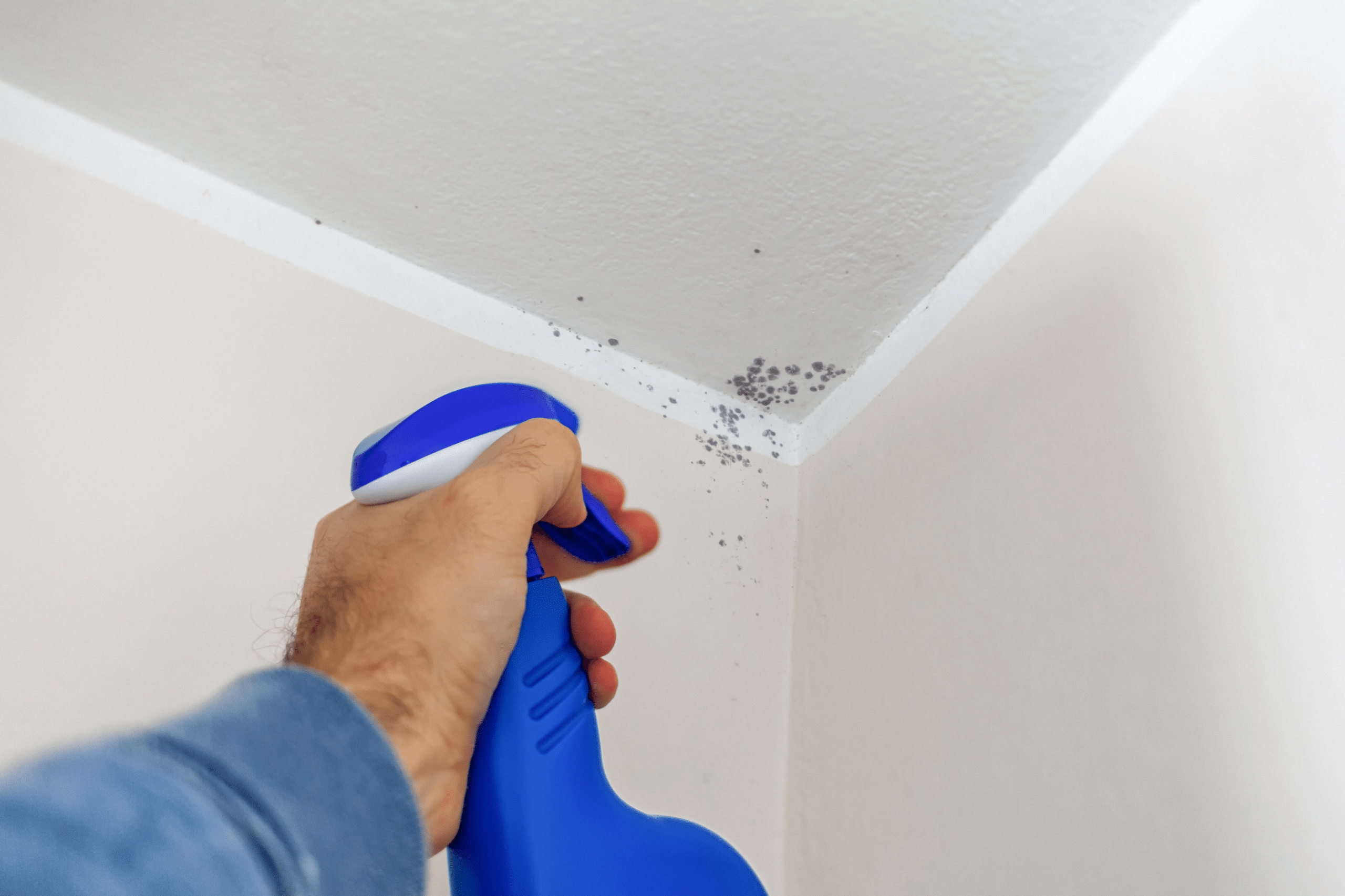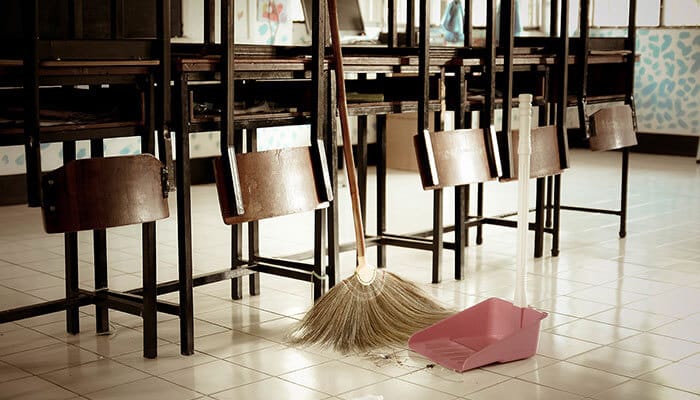Cleanworks explains how to effectively deal with mould during the wet season.
During the wet weather that is common during the summer months, mould growth can run rampant. This can be especially impactful for spaces such as schools and business that commonly close during the Christmas and New Year period.
Although mould is common, it can result in some worrying health issues for individuals exposed to it such as respiratory infections, allergies or asthma. Thus, it is an important to address it before and after closure periods where moisture build up could occur. As providers of professional commercial cleaning in Brisbane, we outline four ways that you can mitigate the growth of mould during the wet weather.
Control Moisture Levels
Mould growth relies on the presence of moisture, so controlling the moisture levels within buildings is the key to avoiding it. To achieve this, proper ventilation plays a crucial role in allowing excess moisture to escape. This could include installing a ventilation system in mould-prone rooms or ensuring that windows are left open on sunny days to allow excess moisture to escape.
Additionally, in order to further prevent mould while your business or school is closed, dehumidifiers can be an effective option. These appliances create an inhospitable environment for mould, ensuring effective moisture control while buildings are unoccupied and cleaning is less regular.
Regular Inspections
Conducting regular inspections before and after closure periods is a proactive strategy for preventing mould growth. By thoroughly examining your premises for sources of water intrusion and existing outbreaks, steps can be taken to remove mould and prevent future growth. Timely detection and resolution are fundamental for keeping your business or school mould-free. Professional commercial cleaning in Brisbane, such as Cleanworks, can inspect your buildings to pinpoint hotspots of mould that need attention.
Utilise Mould-Resistant Materials
If you are building a new space or planning to renovate an existing building, this can be a good opportunity to implement mould resistant materials. These materials are specifically designed to deter mould development by inhibiting its ability to take root and thrive. Common mould-resistant materials could include moisture-resistant drywall, mould-resistant paints, or mould-resistant insulation. While this is a more costly method for avoiding mould, it can be a worthwhile endeavour in the long run, especially if you are located in a high humidity location.
Deep Cleaning Before and After Closures
One of the most effective ways to help avoid the development of mould during wet weather and closures is to schedule regular deep cleaning. Professional cleaners, such as Cleanworks, can perform thorough deep cleaning to ensure that any existing mould is effectively removed. Furthermore, they will pay special attention to mould-prone areas such as bathrooms and kitchens, and address any areas that could trap moisture, such as carpets, to assist with preventing future growth.







